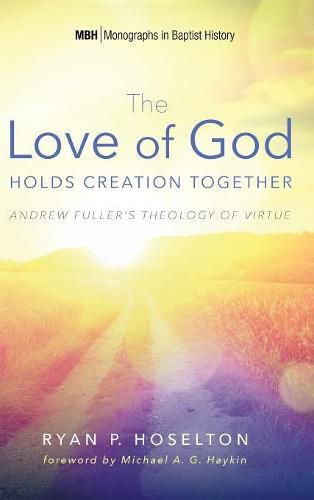Readings Newsletter
Become a Readings Member to make your shopping experience even easier.
Sign in or sign up for free!
You’re not far away from qualifying for FREE standard shipping within Australia
You’ve qualified for FREE standard shipping within Australia
The cart is loading…






This title is printed to order. This book may have been self-published. If so, we cannot guarantee the quality of the content. In the main most books will have gone through the editing process however some may not. We therefore suggest that you be aware of this before ordering this book. If in doubt check either the author or publisher’s details as we are unable to accept any returns unless they are faulty. Please contact us if you have any questions.
The English Baptist Andrew Fuller (1754-1815) is well-known today for his nuanced Evangelical answer to the Modern Question against hyper-Calvinism, founding and leading the Baptist Missionary Society, and his exemplary pastoral ministry. In his day, however, he was also esteemed as a formidable apologist for Christian orthodoxy, especially in the area of moral reasoning. Following in the footsteps of his theological mentor, Jonathan Edwards, Fuller labored to defend the moral goodness and salutary nature of Christian doctrine against the new moral philosophy of the Enlightenment. As optimism in the moral potential of human nature waxed, reliance on God for truth and virtue waned. Echoing a long tradition of classical theologians, Fuller wished to declare afresh that the love of God, as manifested in the gospel, furnished humankind’s only hope for virtue, excellence, and happiness. In this concise study, Hoselton looks to recover the importance of ethical reasoning in Fuller’s theology and ministry and reflect on its merit for today.
$9.00 standard shipping within Australia
FREE standard shipping within Australia for orders over $100.00
Express & International shipping calculated at checkout
This title is printed to order. This book may have been self-published. If so, we cannot guarantee the quality of the content. In the main most books will have gone through the editing process however some may not. We therefore suggest that you be aware of this before ordering this book. If in doubt check either the author or publisher’s details as we are unable to accept any returns unless they are faulty. Please contact us if you have any questions.
The English Baptist Andrew Fuller (1754-1815) is well-known today for his nuanced Evangelical answer to the Modern Question against hyper-Calvinism, founding and leading the Baptist Missionary Society, and his exemplary pastoral ministry. In his day, however, he was also esteemed as a formidable apologist for Christian orthodoxy, especially in the area of moral reasoning. Following in the footsteps of his theological mentor, Jonathan Edwards, Fuller labored to defend the moral goodness and salutary nature of Christian doctrine against the new moral philosophy of the Enlightenment. As optimism in the moral potential of human nature waxed, reliance on God for truth and virtue waned. Echoing a long tradition of classical theologians, Fuller wished to declare afresh that the love of God, as manifested in the gospel, furnished humankind’s only hope for virtue, excellence, and happiness. In this concise study, Hoselton looks to recover the importance of ethical reasoning in Fuller’s theology and ministry and reflect on its merit for today.